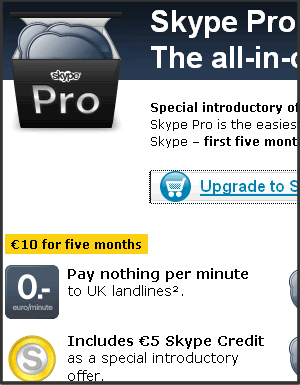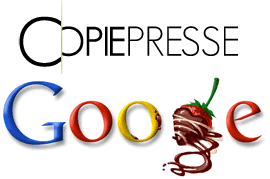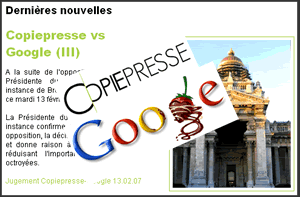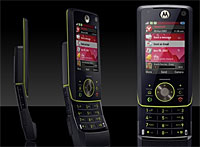Sony has just let it be know that it will be redesigning the internals for the EuropeanPS3, removing the Emotion Engine, which gives compatibility with PS2 games.
 The Emotion Engine will instead be handled in what they call, “a new combination of hardware and software emulation which will enable PS3 to be compatible with a broad range of original PlayStation (PS) titles and a limited range of PlayStation2 (PS2) titles.”
The Emotion Engine will instead be handled in what they call, “a new combination of hardware and software emulation which will enable PS3 to be compatible with a broad range of original PlayStation (PS) titles and a limited range of PlayStation2 (PS2) titles.”
Much fuss was made by Sony of the Emotion Engine when they were building up to the initial release of the first PlayStation. CNN even went as far as asking if the PS2 will replace the PC, with claims like, it was “two times faster than a 733-MHz Pentium III and 15 times faster than a 400-MHz Celeron at handling tasks like full-motion video.”
Now we know that Sony are keen to make the maximum amount of money reduce the amount of money that they are losing from selling PS3s. According to iSupply’s estimate on the Bill Of Material of the PS3, they’ll save $27 on this.
Many UK gamers were angered when they felt that they were paying over the odds for the UK PS3 when the price of £425 was made official. This news will do nothing to make them feel better.
The real danger is that if people think they’re going to get less of a machine that their-cousins in the US and Japan have, that may well be the last straw in deciding which ‘Next-Gen’ console they’ll buy – even if they never end up playing any of their old PS2 games.
Sony is on a knife-edge with this one. We’ve already postulated that the PS3 might not be bought in the way that was once thought, before the Wii caught peoples imaginations.
What is strange is that in an interview at the start of February, SCE UK managing director, Ray Maguire, said that the machines were being built at that point, but omitted to mention that they would be fundamentally different.
Full release follows …
23/02/2007 10:00
Sony Computer Entertainment Europe Announces Hardware Specification of PLAYSTATION®3 for Europe
London, 23 February 2007 – Sony Computer Entertainment Europe (SCEE) today announced that PLAYSTATION®3 (PS3™) to be launched in Europe, Middle East, Africa and Australasia on 23rd March 2007 would utilise a new hardware specification.
The European PS3 will feature the Cell Broadband Engine™, 60 GB hard disc drive, Blu-ray Disc player, built-in Wi-Fi connectivity, SIXAXIS™ wireless controller. It also embodies a new combination of hardware and software emulation which will enable PS3 to be compatible with a broad range of original PlayStation® (PS) titles and a limited range of PlayStation®2 (PS2) titles.
“PS3 is first and foremost a system that excels in playing games specifically designed to exploit the power and potential of the PS3 system,” said David Reeves, President of SCEE. “Games designed for PS3 offer incredible graphics quality, stunning gameplay and massively improved audio and video fidelity that is simply not achievable with PS and PS2 games. Rather than concentrate on PS2 backwards compatibility, in the future, company resources will be increasingly focused on developing new games and entertainment features exclusively for PS3, truly taking advantage of this exciting technology.”
 Some additional PS2 titles will become compatible on the PS3 system through regular downloadable firmware updates, which will be made available through the PLAYSTATION®Network, from http://www.playstation.com or via PS3 game discs, with the first update planned for the launch date of the 23rd March 2007.
Some additional PS2 titles will become compatible on the PS3 system through regular downloadable firmware updates, which will be made available through the PLAYSTATION®Network, from http://www.playstation.com or via PS3 game discs, with the first update planned for the launch date of the 23rd March 2007.
Users will be able to check whether their titles are compatible with PS3 at http://faq.eu.playstation.com/bc. This site will be available on 23rd March to meet launch day.
1. A device compatible with Linear PCM 7.1 Ch is required to output 7.1 ch audio, supported by Dolby TrueHD or a similar format, from the HDMI OUT connector.
2. This system does not support output from the DTS-HD 7.1 Ch. DTS-HD 7.1 Ch audio is output from a 5.1 or lower channel.
3. Usability of all storage media types is not guaranteed.
4. Certain PlayStation 2 format software titles may not perform properly on this system. Visit faq.eu.playstation.com/bc for the latest information regarding compatible titles
 It’s not just old content that will be available, but new productions from Paramount including DreamWorks titles, which will be among the latest films available.
It’s not just old content that will be available, but new productions from Paramount including DreamWorks titles, which will be among the latest films available. The EU alleges that agreements between Apple and the record companies are guilty of breaking European Union rules that prohibit restrictive business practices. It’s far from the first time that the EU and other
The EU alleges that agreements between Apple and the record companies are guilty of breaking European Union rules that prohibit restrictive business practices. It’s far from the first time that the EU and other  “The statement of objections alleges that distribution agreements between Apple and major record companies contain territorial sales restrictions,” he added.
“The statement of objections alleges that distribution agreements between Apple and major record companies contain territorial sales restrictions,” he added. Apple and the record companies now have two months to defend themselves in writing or take part in an oral hearing which usually happens around a month after a written reply has been received.
Apple and the record companies now have two months to defend themselves in writing or take part in an oral hearing which usually happens around a month after a written reply has been received. Her guidance to them is to settle on DVB-H (Digital Video Broadcasting for Handhelds), a European led development of the DVB-T (Television) standard that is throughout large areas of Europe.
Her guidance to them is to settle on DVB-H (Digital Video Broadcasting for Handhelds), a European led development of the DVB-T (Television) standard that is throughout large areas of Europe. Sanity appears to have been reached by Vodafone, as they announce a flat-rate of €12/day for data in Europe – but only if accessed from “mobile-enable laptops” from 1 July 2007. It will replace their current per Megabyte service, giving what they say is “practically unlimited data usage,” which is actually up to 50Mb/day.
Sanity appears to have been reached by Vodafone, as they announce a flat-rate of €12/day for data in Europe – but only if accessed from “mobile-enable laptops” from 1 July 2007. It will replace their current per Megabyte service, giving what they say is “practically unlimited data usage,” which is actually up to 50Mb/day. In the interview with German weekly magazine Focus, published today, she poses the following question, “”Do you think it’s fine that a CD plays in all CD players but that an iTunes song only plays in an iPod?” It’s followed by a couple of words that are going to make uncomfortable reading for Apple, “I don’t. Something has to change.”
In the interview with German weekly magazine Focus, published today, she poses the following question, “”Do you think it’s fine that a CD plays in all CD players but that an iTunes song only plays in an iPod?” It’s followed by a couple of words that are going to make uncomfortable reading for Apple, “I don’t. Something has to change.” The Emotion Engine will instead be handled in what they call, “a new combination of hardware and software emulation which will enable PS3 to be compatible with a broad range of original PlayStation (PS) titles and a limited range of PlayStation2 (PS2) titles.”
The Emotion Engine will instead be handled in what they call, “a new combination of hardware and software emulation which will enable PS3 to be compatible with a broad range of original PlayStation (PS) titles and a limited range of PlayStation2 (PS2) titles.” Some additional PS2 titles will become compatible on the PS3 system through regular downloadable firmware updates, which will be made available through the PLAYSTATION®Network, from http://www.playstation.com or via PS3 game discs, with the first update planned for the launch date of the 23rd March 2007.
Some additional PS2 titles will become compatible on the PS3 system through regular downloadable firmware updates, which will be made available through the PLAYSTATION®Network, from http://www.playstation.com or via PS3 game discs, with the first update planned for the launch date of the 23rd March 2007. As you know, Skype Pro was
As you know, Skype Pro was  The case was brought by Copiepresse, a copyright protection organisation that was representing 17 [UPDATE (thanks Michel) French-speaking] Belgian newspapers, complaining that both Google’s search and News service were in breach.
The case was brought by Copiepresse, a copyright protection organisation that was representing 17 [UPDATE (thanks Michel) French-speaking] Belgian newspapers, complaining that both Google’s search and News service were in breach.
 We reckon there could be moist spots breaking out in the gussets of mobile phone freaks everywhere with a veritable onslaught of new phones being announced today.
We reckon there could be moist spots breaking out in the gussets of mobile phone freaks everywhere with a veritable onslaught of new phones being announced today. Decked out in a natty black body with green trim, the MOTORIZR Z8 features a 1.4 x 2-inch, QVGA 16 million colour display and a twin camera set up, with a 2 megapixel camera on the back (with 8x zoom and lumi LED light) and a lower spec’d VGA jobbie up front for video calls.
Decked out in a natty black body with green trim, the MOTORIZR Z8 features a 1.4 x 2-inch, QVGA 16 million colour display and a twin camera set up, with a 2 megapixel camera on the back (with 8x zoom and lumi LED light) and a lower spec’d VGA jobbie up front for video calls. There’s also A2DP stereo Bluetooth audio onboard, support for SMS, EMS, MMS 1.22 messaging and SMTP, POP3, IMAP4, SSL/TLS2 email.
There’s also A2DP stereo Bluetooth audio onboard, support for SMS, EMS, MMS 1.22 messaging and SMTP, POP3, IMAP4, SSL/TLS2 email. You may not have heard of them yet, but feisty Brit mobile music company Omnifone have announced one of the first big challengers to Apple’s soon-come iPhone/iTunes Store service.
You may not have heard of them yet, but feisty Brit mobile music company Omnifone have announced one of the first big challengers to Apple’s soon-come iPhone/iTunes Store service. “We will ensure the vast majority of Europeans have the freedom to choose MusicStation by the time iPhone arrives in Europe. We will give consumers the choice they deserve,” he added.
“We will ensure the vast majority of Europeans have the freedom to choose MusicStation by the time iPhone arrives in Europe. We will give consumers the choice they deserve,” he added. Predictably, music tracks will come with digital rights management and be delivered in the eAAC+ format (that’s enhanced advanced audio coding, in case you’re into knowing that kind of thing).
Predictably, music tracks will come with digital rights management and be delivered in the eAAC+ format (that’s enhanced advanced audio coding, in case you’re into knowing that kind of thing).